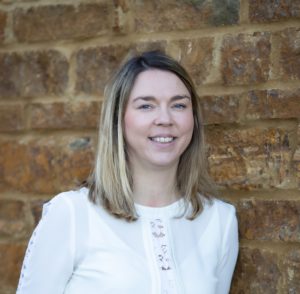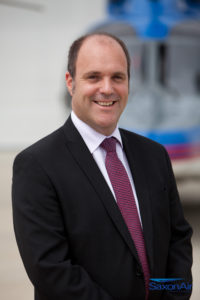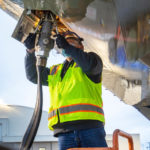Two UK aviation businesses which were hit hard by the Covid-19 pandemic are putting apprenticeships at the heart of their recovery.
National Apprenticeship Week 2022 runs this week, from February 7-13 and focuses on the theme ‘Build the Future.’ Seetec Outsource apprentices is playing a role in helping two aviation industry players to take off again.
Norwich-based charter flight operator SaxonAir lost 95 per cent of its income during the lockdowns, but has used the pandemic as an the opportunity to focus on workforce skills for the future.
At 2Excel Group, which has its main aircraft engineering base in Hampshire and aviation bases at Doncaster Sheffield, Sywell Aerodrome in Northamptonshire and Stansted Airport, the pandemic resulted in its engineering order book being halved. Like SaxonAir, the company has also decided to turn to apprenticeships as the business plans for growth.
Apprenticeships help ageing workforce share their knowledge
Louise Campbell, Group HR director at 2Excel, explained: “On the engineering side, we have an ageing workforce. We risk losing that knowledge and experience, and as an industry there is a real struggle to recruit and fill aircraft engineering vacancies.”
The struggle has been compounded by skilled workers moving to other industries during the pandemic: some estimates say more than one third have left aviation, with Brexit also a contributory factor.
Campbell added: “What could be better than hiring apprentices, so those skilled engineers due to retire can share their expertise? With the challenges the industry faces, apprenticeships are an efficient way of growing your own talent. You get great loyalty back by investing time and effort into them.”
“Proper, structured aviation pathway” needed in the UK
At SaxonAir, CEO and former pilot Alex Durand explained: “The UK aviation sector is world-leading and a major employer, yet there is a real lack of recognised, rigorous professional training.”
 As an early adopter of apprenticeships, SaxonAir has started working with skills specialist Seetec Outsource, recognising Seetec’s willingness to adapt available apprenticeship standards to meet the needs of the business, while maintaining their integrity.
As an early adopter of apprenticeships, SaxonAir has started working with skills specialist Seetec Outsource, recognising Seetec’s willingness to adapt available apprenticeship standards to meet the needs of the business, while maintaining their integrity.
“There’s a real scarcity of appropriate aviation apprenticeships on the operational side,” Durand said, “We have done the hard work to get our apprenticeship programme up and running and adapted to our needs, we see it as the way to grow and get the right skills in the business.
“We need a proper, structured aviation pathway in the UK. We want the apprenticeships to be shaped and moulded to the work we do. Apprenticeships are really important to give our workforce a structured understanding of our work and give everyone the same language.”
Workforce gains structured understanding of work through apprenticeships
“Apprenticeships are not just for school leavers. We have asked our experienced people to undertake them too, offering everyone the opportunity to upskill. Our experienced people will then have recognised qualifications, which reflect what they have learned and applied. We work in a challenging environment with highly skilled, highly motivated professionals, and I think it does everyone a disservice if they don’t have the accreditation to reflect that.”
At 2Excel Engineering, such has been the success of its engineering programmes, that the business decided to recruit an apprentice to its aviation operations team last year, with the quality of applicants so high that they recruited two.
Jordan Morris, 26, and Elissa Hennessy-Boyle,18, joined 2Excel Aviation at Doncaster Sheffield Airport with their ground specialist apprenticeships delivered by Seetec Outsource.
Apprenticeships offer opportunity to increase diversity
Director of Ground Operations, Simon Spurgeon, said: “Elissa and Jordan have made a great start to their apprenticeships, and we applaud the positive contributions they are making, not just to their teams, but to our business and to the aviation industry.”
Elissa Hennessy-Boyle said: “I really like the job because no two days are the same. I’m so glad I didn’t go to university. Being in work and being able to earn money suits me.”
Jordan Morris added: “My apprenticeship is really good. When I started, I’d been out of education for eight years, and I wasn’t sure how I would take to it. But our assignments relate to real-life situations.”
Campbell is enthusiastic about the way the two apprentices have engaged with their learning. She believes apprenticeships also offer opportunities to increase the diversity of their workforce and attract more women into engineering.
For SaxonAir, Durand said developing the aviation apprenticeship structure will help to raise employment aspirations in Norfolk. “In some parts of the region, it’s hard for school leavers to feel there’s a route for them. We offer an interesting environment they wouldn’t necessarily be aware of, which is literally on their doorstep.”
Main image: Jordan Morris at 2Excel Aviation

